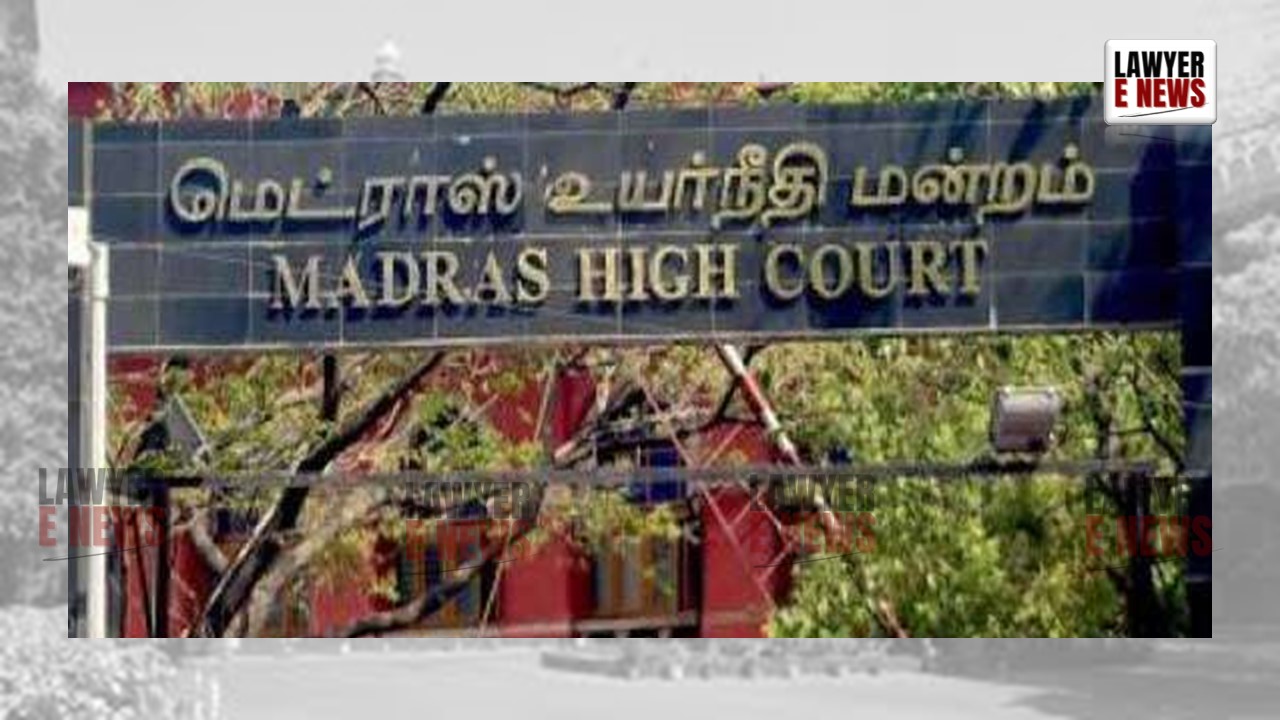-
by Admin
15 February 2026 5:01 PM



Madras High Court dismissed a revision petition challenging the referral of a trademark dispute to arbitration. Justice M. Nirmal Kumar held that mere allegations of fraud, limited to internal affairs, do not preclude arbitration, and disputes arising from contractual rights, including those related to the assignment of trademarks, are arbitrable under the Arbitration and Conciliation Act, 1996.
The Court reaffirmed the principle that contractual disputes, even involving intellectual property, fall within the purview of arbitration unless they involve serious allegations of fraud or rights in rem.
“Contractual Rights Under Trademark Assignment Deed Are Arbitrable”
The judgment arises from a civil revision petition challenging an order of the Commercial Court, Coimbatore, referring their trademark-related dispute to arbitration under Section 8 of the Arbitration and Conciliation Act, 1996. The petitioners contended that allegations of fraud and the nature of the dispute as one involving rights in rem rendered it non-arbitrable.
The Court dismissed the petition, holding that the dispute pertained to contractual rights under the assignment deed and not statutory rights under the Trademarks Act, 1999, and could, therefore, be adjudicated by an arbitral tribunal.
The petitioners, proprietors of the trademark “SRI ANGANNAN BIRIYANI HOTEL”, filed a suit before the Commercial Court, Coimbatore, seeking a permanent injunction to restrain the first respondent from using the trademark and damages of ₹20,00,000 for alleged infringement. The first respondent contended that the trademark was assigned to him via two assignment deeds dated September 20, 2017 and October 14, 2019, which included an arbitration clause.
The petitioners alleged that the assignment deed was fabricated and fraudulently executed, claiming they had been misled into signing blank documents. They argued that such allegations of fraud rendered the arbitration clause invalid and the dispute non-arbitrable.
The Commercial Court, relying on the arbitration clause in the assignment deed, referred the matter to arbitration under Section 8 of the Arbitration and Conciliation Act, 1996. Aggrieved by this decision, the petitioners filed the present revision petition before the Madras High Court.
The Court held that mere allegations of fraud do not automatically oust the jurisdiction of arbitration unless they meet certain criteria. Relying on the Supreme Court’s decisions in Rashid Raza v. Sadaf Akhtar (2019) 8 SCC 710 and Sushma Shivkumar Daga v. Madhurakumar Ramkrishnaji Bajaj (2024) 1 CTC 84, the Court noted:
“For fraud to oust arbitration, it must either (i) pervade the entire contract, including the arbitration agreement, rendering it void, or (ii) touch upon public interest or rights in rem, with implications beyond the internal affairs of the parties.”
The Court found that the allegations of fraud in this case were confined to the internal dealings of the parties and had no implications in the public domain. Additionally, the petitioners did not dispute their signatures on the assignment deed.
The Court clarified that disputes concerning trademarks may involve two types of rights:
Statutory rights under the Trademarks Act, 1999, which are rights in rem and generally non-arbitrable.
Contractual rights arising from agreements, which are rights in personam and arbitrable.
The Court emphasized that the present dispute arose from the assignment deed, which was a contractual arrangement, and not from statutory trademark rights. Relying on the Supreme Court’s decision in Vidya Drolia v. Durga Trading Corporation (2020) AIR SC 929, the Court held:
“Where the dispute pertains to contractual rights under an assignment, it does not involve rights in rem and is amenable to arbitration.”
The petitioners contended that the arbitration clause in the assignment deed was invalid due to fraud. However, the Court noted that under Section 16 of the Arbitration and Conciliation Act, the validity of an arbitration agreement is independent of the validity of the main contract. The Court stated:
“Even if the main contract is alleged to be invalid, the arbitration clause remains binding unless it is specifically shown to be vitiated by fraud.”
The Court also noted that the assignment deed had been duly signed and attested by a notary public, and the petitioners had received periodic payments under the agreement, further undermining their claims of fraud.
The Court refused to interfere with the Commercial Court’s order, emphasizing the mandatory nature of Section 8 of the Arbitration and Conciliation Act. It cited the Supreme Court’s ruling in Hindustan Petroleum Corporation Ltd. v. Pinkcity Midway Petroleum (2003) 6 SCC 503, which held:
“Where an arbitration clause exists, the Court is duty-bound to refer the parties to arbitration unless it finds that no valid arbitration agreement exists.”
The Madras High Court dismissed the revision petition, affirming the Commercial Court’s decision to refer the dispute to arbitration. The Court held:
The allegations of fraud did not render the arbitration clause invalid.
The dispute arose from contractual rights under the assignment deed and was, therefore, arbitrable.
The petitioners could raise their claims and defenses, including allegations of fraud, before the arbitral tribunal.
The Court directed the parties to proceed with arbitration as per the terms of the assignment deed and clarified that its observations would not prejudice the arbitral proceedings.
This judgment reiterates that mere allegations of fraud, without public implications or pervasiveness, cannot bar arbitration, especially in contractual disputes. It also underscores the arbitrability of intellectual property disputes when they arise from agreements rather than statutory rights.
By emphasizing the primacy of arbitration agreements and the limited grounds for judicial interference, the Madras High Court reinforces India’s pro-arbitration stance under the Arbitration and Conciliation Act, 1996.
Date of Decision: January 9, 2025
